Research Groups and Laboratories including Brain Tumor Registry
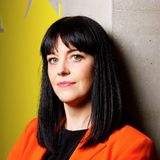
Research Group Amberg
Brain development, pediatric brain tumors
Mag.arer.nat. Nicole Amberg, BSc PhD
nicole.amberg@meduniwien.ac.at
Research Focus:
- The brain harbors an extraordinary degree of neuronal and glial cell-type diversity. Recent studies show that the brain consist of more than 3,300 different cell types. The research group is interested in how a brain of correct size and cell composition is being generated.
- The basis for the brain’s impressive cell-type diversity is laid during embryonic and fetal development and arises through particular cell division and differentiation patterns of neural stem cells. The complex spatiotemporal coordination of neuron and glial cell production is highly vulnerable to intrinsic and external disruptions, such as hereditary or de novo germline mutations, somatic mutations, maternal malnutrition, and maternal exposure to viruses or toxins.
- Thus, the research group focuses on dissecting the cell-autonomous and non-cell-autonomous mechanisms of brain development in health and disease. The lab covers a broad range of diseases, such as pediatric brain tumors arising through tumor predisposition syndromes or developmental malformations like hemimegalencephaly or rhomboencephalosynapsis.
Methods:
The lab employs patient-derived iPSCs, 3D cell culture models, mouse models, as well as fetal tissue from the Medical University’s neurobiobank. We perform state-of-the-art genetics and imaging techniques as well as various single-cell approaches to assess neural stem cell lineage progression on multiple levels.
Furthermore, the lab is highly enthusiastic to develop or participate in diversity, equity and inclusion activities as well as science education and outreach.
Learn more: https://www.nicoleamberg.com/
Keywords:
- stem cells, developmental disorders, brain development, tumor predisposition syndromes, Polycomb, single-cell, cortex, cerebellum, brainstem
Selected third party funds/ongoing projects:
- Sommer 2024 FFG Talentesommer
- 05/2024 – 04/2027 FWF Elise Richter Fellowship V1041
- 06/2023 – 05/2026 Fellinger Krebsforschung Förderung
- Sommer 2023 FFG Summer Talents
- 12/2018 – 11/2021 FWF Hertha Firnberg Fellowship T1031
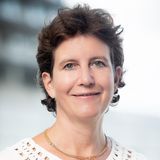
Research Group Haberler
Pediatric brain tumors, CNS malformations, epilepsy-pathology
Univ.-Prof.in Dr.in Christine Haberler
christine.haberler@meduniwien.ac.at
Research Focus:
-
The brain is the most fascinating and ingenious gift we have received.
- We are interested in brain diseases of fetuses, children and adolescents, and study tumours and neurodevelopmental disorders/developmental neuropathologies.
- Pediatric brain tumours are the most common solid tumours and the most common cause of cancer death in childhood. Our research focuses on molecular diagnostic and prognostic markers of pediatric brain tumours. We are particularly interested in the tumour microenvironment and brain development and their role in tumour origin.
- Developmental malformations of the brain comprise a wide range of different disorders. We correlate pre- and postnatal MRI images with morphological phenotypes and genetic alterations for a better understanding of these disabling diseases.
Alumni:
-
Asuka Araki
-
Bernadette Becsi
-
Johannes Gojo
-
Sabine Kaindl
-
Dominik Kirchhofer
-
Philippe Muller
-
Harald Stefanits
-
Anna Walter
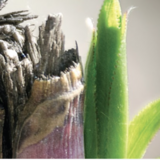
J. Hainfellner
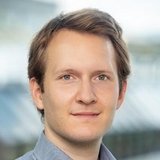
Research Group Roetzer-Pejrimovsky
Neurooncology, neuromolecular biology, digital pathology
Dr. med.univ. Dr. scient.med. Thomas Rötzer-Pejrimovsky
thomas.roetzer-pejrimovsky@meduniwien.ac.at
Doctoral Students:
- Bernhard Hennebichler
Medical Students:
- Damla Kurtulmuş
- Jonas Rubenthaler
Undergraduate Students:
- Nina Pucher
Funding:
- 2019 - 2021 DOC Stipendium der ÖAW
Research Focus:
Adult brain tumors are associated with a high disease burden for patients and their families.
The biological heterogeneity of these tumors poses a major challenge in modern oncology.
Our work focuses on deciphering the molecular pathological makeup of adult brain tumors.
In doing so, we integrate classical histopathology with state-of-the-art molecular genetic approaches to identify the biological underpinnings of tumorigenesis.
We place a special emphasis on the characterization of molecular pathological diagnostic and predictive biomarkers.
In close collaboration with our clinical partners, we aim to translate innovative methods into daily clinical routine to guide personalized treatment decisions.
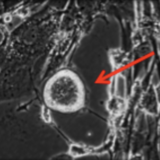
Research Group Ströbel
Glioblastom, pediatric brain tumors
Univ.-Prof. Dr. Thomas Ströbel
thomas.stroebel@meduniwien.ac.at
Research Focus:
- Causes of therapy resistance in glioblastomas
- New therapeutic approaches to limit migration of glioblastomas
- New therapeutic approaches for pediatric brain tumors

Research Group Wöhrer
Neurooncology, neuropathology, neuromolecular biology, GlioAge (Project)
Dr.inmed.univ et sci.med. Adelheid Wöhrer
adelheid.woehrer@meduniwien.ac.at
Doctoral Students:
- Jana Breu
- Lisa Greutter
- Andreas Hainfellner (shared with Weningner lab)
- Dr.med.univ. Thomas Rötzer-Pejrimovsky (ÖAW doc recipient)
Medical Students:
- Vivian Patrick Redl
Master’s students:
- Raphael Hangel, FH Technikum Wien
Undergraduate Students:
- Yelyzaveta Miller-Michlits, Uni Wien
Alumni:
- Ali Al Hilou, MedUni Wien
- Baran Atli, MedUni Wien
- Martin Borkovec, LMU München
- Stefan Erben, HTL Hollabrunn
- Johanna Gesperger, BSc, MSc, PhD (shared with Baumann lab)
- Bernhard Hennebichler, FH Campus Wien
- Andreas Mattes, HTL Hollabrunn
- Anna Christina Moser, MedUni Wien
- Martina Muck, FH Technikum Wien
- Magdalena Neuhauser, MedUni Wien
- Florian Scherz, MedUni Wien
- Lukas Seebrecht, MedUni Wien
- Gloria Wilk, FH Campus Wien
Research Focus:
-
I am Principal Investigator and neuropathologist at the Division of Neuropathology and Neurochemistry. My research is focused on the deep phenotypic characterization of malignant brain tumors such as glioblastoma or primary CNS lymphoma. We typically study population-scale cohorts, which we recruit through a disease registry and the local neurobiobank, and bring together multiplatform imaging phenotypes with molecular tumor profiles. We are particularly interested in the longitudinal tumor evolution including clonal outgrowth as well as the unique environment of aging brains.
Keywords:
- Brain Neoplasm; Glioblastoma; Pathology; Multiplatform Imaging; Molecular biology
Funding:
- Decoding cellular senescence in glioblastoma, GlioAge (2021). Source of Funding: WWTF (Wiener Wissenschafts- Forschungs- und Technologiefonds) LS20-034. Principal Investigator
- Targeting clonal complexity in glioblastoma (2020). Source of Funding: FWF (Austrian Science Fund), TAI 98B. Principal Investigator
- Portrait of Primary CNS Lymphoma (2016). Source of Funding: OeNB (Oesterreichische Nationalbank), 16725. Principal Investigator
- Disease progression and treatment-induced alterations in glioblastoma (2014). Source of Funding: FWF (Austrian Science Fund), KLIF. Principal Investigator
